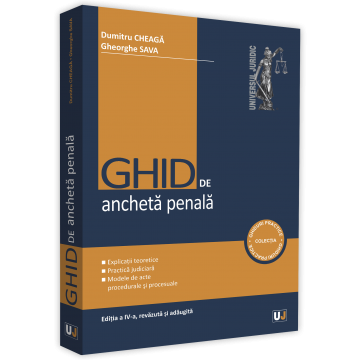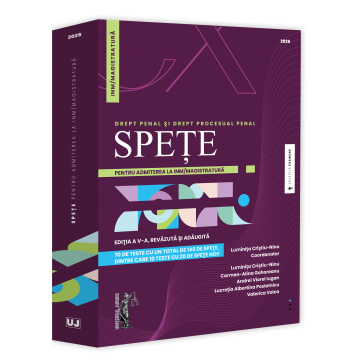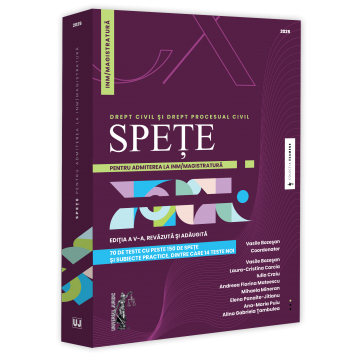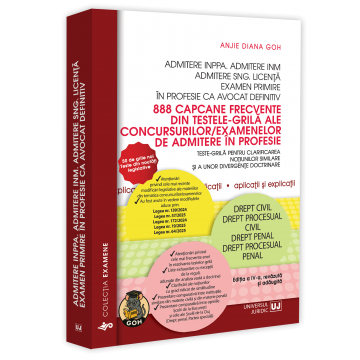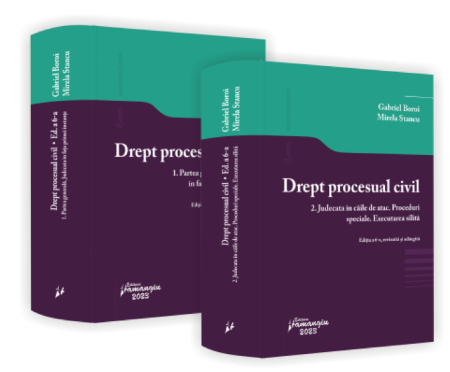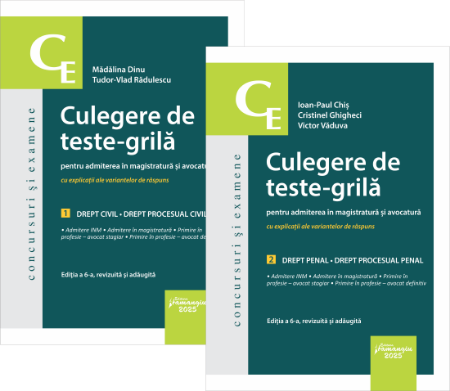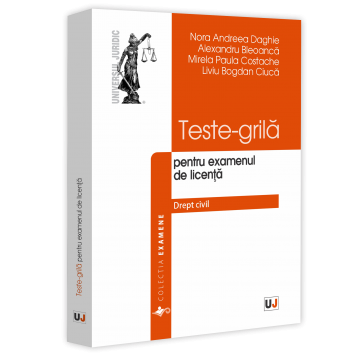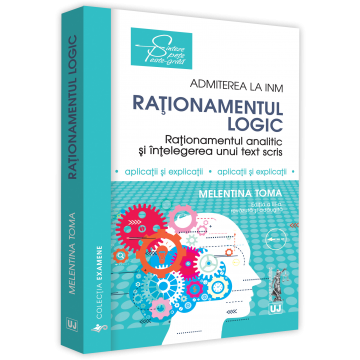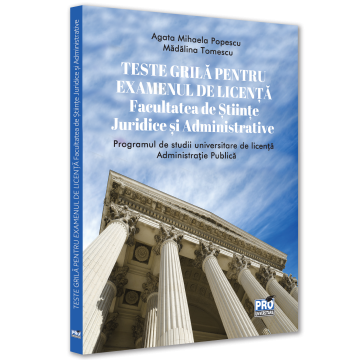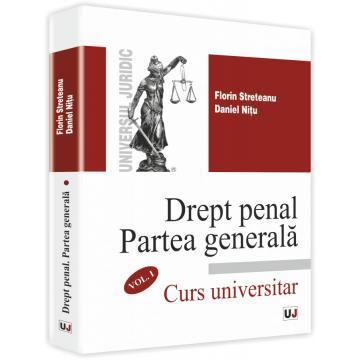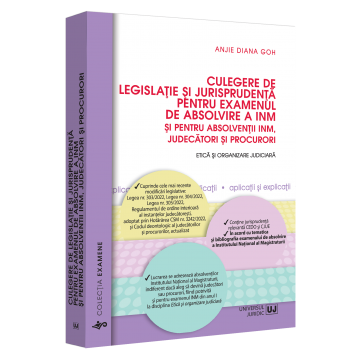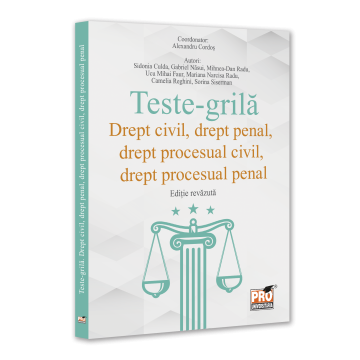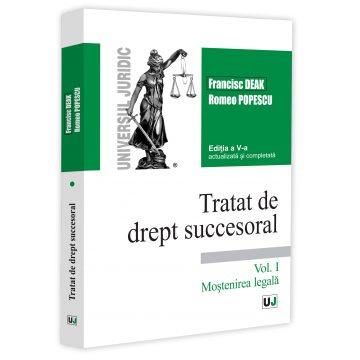Manuscript proposals: [email protected] / 0745 204 115 //// Tracking orders Individuals / Sales: 0745 200 357 / Orders Legal entities: 0721 722 783
Publisher: Editura Universitară
Author: Nicolae Pana
Edition: I
Pages: 214
Publisher year: 2023
ISBN: 978-606-28-1699-5
DOI: 10.5682/9786062816995
Product Code:
9786062816995
Do you need help?
0745 200 357
- Description
- Download (1)
- Authors
- More details
- Content
- Reviews (0)
Private life is strictly related to the way in which the individual understands to assume and expose his personal image. Belonging to a community is decisive, the cultural factor as well. The Internet causes the exposure to be underestimated most of the time, considering that the public image is confused with the public interest and especially with the exposure of private life as a way of social acceptance.
The prosumer is the new individual who, exposing himself publicly, becomes the subject of analysis by professional communities. The human being cannot be imagined without interaction with the virtual world, and entering the virtual world through modern technological means means transforming the individual into a producer. The simple existence or acquisition of the capacity to use is a determining factor in assuming the position of a consumer. The prosumer is the exponent of the virtual society that brings its own experience offline and contributes to the development of society.
The right to be forgotten is often invoked within virtual communities, it being assimilated to returning to anonymity.
Author
The prosumer is the new individual who, exposing himself publicly, becomes the subject of analysis by professional communities. The human being cannot be imagined without interaction with the virtual world, and entering the virtual world through modern technological means means transforming the individual into a producer. The simple existence or acquisition of the capacity to use is a determining factor in assuming the position of a consumer. The prosumer is the exponent of the virtual society that brings its own experience offline and contributes to the development of society.
The right to be forgotten is often invoked within virtual communities, it being assimilated to returning to anonymity.
Author
-
E-Agora. Fundamental rights in the age of digitization
Download
NICOLAE PANA
“A public place - Ágora - the space where all the citizens who want to participate in the public life of the city should enter” (Rousseau), this was the desideratum of direct democracy, considered by some philosophers to be the only political and social organization capable to offer the necessary conditions to protect and respect the citizen's rights and freedoms, the ultimate goal of social happiness.
Democracy and the role of the individual in society is a theme that has been analyzed and dissected by lawyers, philosophers and sociologists throughout history, in their attempts to find the formula of optimal blending between state power and individual interest.
The aim of this paper is to analyze and compare the original model of direct democracy with the actual socio political context, where new technologies open unexpected opportunities for communication and citizen participation. The World Wide Web represents a new space, a new “market” - E-ágora - big enough so that any citizen of this world can effectively participate, in real time, in the public life of the „global” city.
Starting from the idea that new technologies can deeply and radically influence the legislative process, by placing the individual person in the foreground and pushing back the parties and classical political organizations, we are trying to redefine the concept of “Ágora”, regarded as the leitmotif of original democracy. In direct connection to the „global village” (aldea global) and the infinity of cyberspace, it is possible to inaugurate E Ágora, the virtual place where all the citizens are permanently interconnected through technology, and simultaneously express conscious opinions and proposals. Materializing this concept impose redefining operational mechanisms and legislatives rules, in few words: redefine the legislative process.
Ágora, seen as an institution of law or, more precisely, of the history of natural law, was understood as the physical place where decisions were taken by majority, as an expression of the idea of democracy. Independent of the historical evolution, the concept synthesizes the idea of participation in the legislative process, either direct or by representation.
By joining classical concepts to new social realities, this paper analyzes and exposes the transformations that redefine the political role of the citizen, played in the society and in the legislative process. Given the indisputable influence of contemporary technology on both human behavior and individual cognitive processes, we cannot ignore the possibilities that it offers to citizens in order to reorganize the mechanisms of public policy making process. Regarding the impact of the new technologies on society or on individuals it is difficult to find a unitary opinion. The opinions on the subject are divided into a series of parallel horizons, without common points, the ideas will be validated or dismantled in the future, when the real effects will be studied.
Ágora vs. E-Ágora. Just as the ancient Ágora had two functions, the physical public place where all the citizens met, and a process of correlating and amalgamating public opinions in erga omnes applicable laws, so E ágora converges towards a representation of public opinion, a virtual place where opinions, beliefs and, ultimately, legal acts are formed.
Regarding the meaning of the proposed concepts, in terms of the political manifestation of individuals, we consider the following synonymy to be defining: ágora represents off line communities and e Ágora represents the manifestation of offline communities in the online environment. It should be emphasized that the diversity of online communities goes beyond any organizational form of offline communities. This situation is determined by the technological advance, which makes the offline interaction to appear as an incomparably slower way of commu-nication, unproductive and segregative (meaning that it produces major differences among community members).
We consider necessary to analyse also the source of discussions. In this regard, we have started from the primordial necessity of dialogue. The human being carries out a dialogue in specific cases: socialization or justification. Socialization is the way a person understands to address another person or group, in order to satisfy the need of communication, and justification is the answer given by the interlocutor to a specific question, considered the subject of socialization. Without going into a process of explanation of the terms and without resuming topics already debated in the literature, we can conclude that the agenda in Ágora is the same as main topics of the dialogues carried out in E-Ágora: the determinants and the conclusions cannot be essentially of another kind. If that is said, we wonder if there really is something new in the role played by these two institutions in community life.
Regarding the association of the two concepts, participation and democracy, which led to the definition of a new type of democracy, called participative democracy; we consider that it was determined by the need to validate the collective decision. The participation of the individual in the off line community's life validates his social role, at the same time that his participation in virtual communities validates their purpose and objectives, giving force to expressed opinions and endorsing public positions regarding the subjects of interest for the society, seen as a whole.
Starting from the above, we could synthesize this paper in the following words and key words: commu-nication, offline communities, Ágora, democracy, opinion, public opinion, custom, social dialogue, participation and representation, majority, determinant public opinion, participative democracy, online communities, aggregation, technological advances, E-Ágora.
Democracy and the role of the individual in society is a theme that has been analyzed and dissected by lawyers, philosophers and sociologists throughout history, in their attempts to find the formula of optimal blending between state power and individual interest.
The aim of this paper is to analyze and compare the original model of direct democracy with the actual socio political context, where new technologies open unexpected opportunities for communication and citizen participation. The World Wide Web represents a new space, a new “market” - E-ágora - big enough so that any citizen of this world can effectively participate, in real time, in the public life of the „global” city.
Starting from the idea that new technologies can deeply and radically influence the legislative process, by placing the individual person in the foreground and pushing back the parties and classical political organizations, we are trying to redefine the concept of “Ágora”, regarded as the leitmotif of original democracy. In direct connection to the „global village” (aldea global) and the infinity of cyberspace, it is possible to inaugurate E Ágora, the virtual place where all the citizens are permanently interconnected through technology, and simultaneously express conscious opinions and proposals. Materializing this concept impose redefining operational mechanisms and legislatives rules, in few words: redefine the legislative process.
Ágora, seen as an institution of law or, more precisely, of the history of natural law, was understood as the physical place where decisions were taken by majority, as an expression of the idea of democracy. Independent of the historical evolution, the concept synthesizes the idea of participation in the legislative process, either direct or by representation.
By joining classical concepts to new social realities, this paper analyzes and exposes the transformations that redefine the political role of the citizen, played in the society and in the legislative process. Given the indisputable influence of contemporary technology on both human behavior and individual cognitive processes, we cannot ignore the possibilities that it offers to citizens in order to reorganize the mechanisms of public policy making process. Regarding the impact of the new technologies on society or on individuals it is difficult to find a unitary opinion. The opinions on the subject are divided into a series of parallel horizons, without common points, the ideas will be validated or dismantled in the future, when the real effects will be studied.
Ágora vs. E-Ágora. Just as the ancient Ágora had two functions, the physical public place where all the citizens met, and a process of correlating and amalgamating public opinions in erga omnes applicable laws, so E ágora converges towards a representation of public opinion, a virtual place where opinions, beliefs and, ultimately, legal acts are formed.
Regarding the meaning of the proposed concepts, in terms of the political manifestation of individuals, we consider the following synonymy to be defining: ágora represents off line communities and e Ágora represents the manifestation of offline communities in the online environment. It should be emphasized that the diversity of online communities goes beyond any organizational form of offline communities. This situation is determined by the technological advance, which makes the offline interaction to appear as an incomparably slower way of commu-nication, unproductive and segregative (meaning that it produces major differences among community members).
We consider necessary to analyse also the source of discussions. In this regard, we have started from the primordial necessity of dialogue. The human being carries out a dialogue in specific cases: socialization or justification. Socialization is the way a person understands to address another person or group, in order to satisfy the need of communication, and justification is the answer given by the interlocutor to a specific question, considered the subject of socialization. Without going into a process of explanation of the terms and without resuming topics already debated in the literature, we can conclude that the agenda in Ágora is the same as main topics of the dialogues carried out in E-Ágora: the determinants and the conclusions cannot be essentially of another kind. If that is said, we wonder if there really is something new in the role played by these two institutions in community life.
Regarding the association of the two concepts, participation and democracy, which led to the definition of a new type of democracy, called participative democracy; we consider that it was determined by the need to validate the collective decision. The participation of the individual in the off line community's life validates his social role, at the same time that his participation in virtual communities validates their purpose and objectives, giving force to expressed opinions and endorsing public positions regarding the subjects of interest for the society, seen as a whole.
Starting from the above, we could synthesize this paper in the following words and key words: commu-nication, offline communities, Ágora, democracy, opinion, public opinion, custom, social dialogue, participation and representation, majority, determinant public opinion, participative democracy, online communities, aggregation, technological advances, E-Ágora.
Preface / 7
Abstract / 12
Introduction / 16
1. Protection of private life / 31
1.1. Private life - concept / 32
1.2. The right to private life and the relationship with other rights / 36
1.3. Correlative rights and international jurisprudential interpretation / 45
2. Protection of human dignity / 51
2.1. Human dignity - definitions and concepts / 51
2.2. Human dignity as a national and international constitutional value / 62
3. The right to opinion / 80
3.1. Freedom of expression / 86
3.2. Fake news / 101
4. Rights of prosumers / 107
4.1. The prosumer in globalizing democracies / 110
4.2. Prosumer vs. Collaborative economies / 116
5. The right to be forgotten / 131
5.1. "Habeas data" and forgetting / 132
5.2. The right to delete data / 136
6. Protection of ethnic and cultural identity / 139
6.1. Civilization and culture in the ICT world / 146
6.2. Characteristics of cultural identity / 158
6.3. Characteristics of ethnic identity / 164
Conclusions / 168
Conclusions / 184
Bibliography / 200
Electronic resources / 212
Abstract / 12
Introduction / 16
1. Protection of private life / 31
1.1. Private life - concept / 32
1.2. The right to private life and the relationship with other rights / 36
1.3. Correlative rights and international jurisprudential interpretation / 45
2. Protection of human dignity / 51
2.1. Human dignity - definitions and concepts / 51
2.2. Human dignity as a national and international constitutional value / 62
3. The right to opinion / 80
3.1. Freedom of expression / 86
3.2. Fake news / 101
4. Rights of prosumers / 107
4.1. The prosumer in globalizing democracies / 110
4.2. Prosumer vs. Collaborative economies / 116
5. The right to be forgotten / 131
5.1. "Habeas data" and forgetting / 132
5.2. The right to delete data / 136
6. Protection of ethnic and cultural identity / 139
6.1. Civilization and culture in the ICT world / 146
6.2. Characteristics of cultural identity / 158
6.3. Characteristics of ethnic identity / 164
Conclusions / 168
Conclusions / 184
Bibliography / 200
Electronic resources / 212
If you want to express your opinion about this product you can add a review.
write a review

6359.png)
![E-Agora. Fundamental rights in the age of digitization - Nicolae Pana [1] E-Agora. Fundamental rights in the age of digitization - Nicolae Pana [1]](https://gomagcdn.ro/domains/editurauniversitara.ro/files/product/large/e-agora-drepturi-fundamentale-in-era-digitalizarii-nicolae-pana-732784.jpg)
